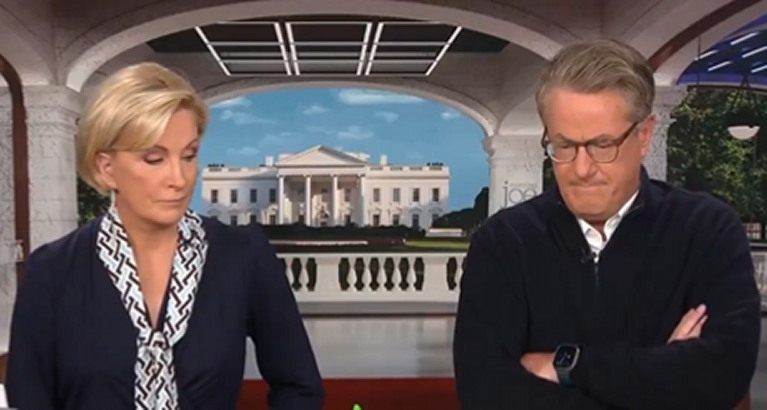As the impending election draws near, Joe Scarborough, a prominent host on MSNBC’s Morning Joe, appears to be increasingly agitated, positing alarming assertions about former President Donald Trump. Scarborough’s most recent claims include the accusation that Trump is gearing up for civil war, a statement reflecting not just his anxiety about the election but also what he perceives as a deepening threat posed by Trump and his supporters. The language Scarborough employs is laden with fear-mongering, suggesting that those who oppose Trump have reveled in un-American activities, which he believes are intended to undermine the former president’s legitimacy. Such rhetoric, Scarborough argues, highlights Trump’s alleged desperation as he faces various legal and political challenges.
During a rally in Pennsylvania, Trump made incendiary remarks about the opposition, alleging slander, impeachment attempts, and even threats to his life. Scarborough seized on these comments, claiming that Trump’s language and behavior were symptomatic of a man on the verge of inciting violence, drawing parallels to the events leading up to the January 6 Capitol riots. He posited that Trump’s family and allies, by seeking to cast blame on Democrats for rhetoric that could lead to violence, were instead amplifying the climate of unrest. Scarborough expressed particular alarm at what he described as dangerous rhetoric, suggesting that Trump’s actions are pushing the boundaries of normal political discourse into an unsettling territory that poses a risk to national stability.
Furthermore, Scarborough suggested that an inherent desperation underpins Trump’s current approach, manifesting in both his policies and public statements. By framing Trump as a desperate individual and an increasingly desperate family, Scarborough implies that the former president is not only irrational but also capable of inciting real violence against perceived enemies. This characterization positions Trump as a demagogue leveraged by fear tactics, which invigorates the anxieties of his followers while alienating moderate and independent voters. Scarborough’s claims touch on wider societal concerns about political polarization, whereby the extremes of both parties feel threatened and resort to catastrophic narratives to justify their actions.
At the heart of Scarborough’s remarks is the notion of accountability. He seems to elucidate a narrative in which the Trumps are untrustworthy purveyors of misinformation, intent on shaping the future by instilling fear rather than fostering unity. Scarborough’s rhetoric implies that such behavior warrants serious scrutiny and should not be brushed aside as mere political posturing. He argues that the way Trump and his family frame their political battle is a precursor to increased societal tensions, suggesting that they may be laying the groundwork for a more significant conflict if their political ambitions are thwarted.
Critics of Scarborough may argue that he is simply projecting his own fears onto Trump and his supporters, creating a narrative that feeds into his broader agenda of opposing Trumpism at all costs. This raises questions about media bias and the trustworthiness of political commentary during such a charged electoral climate. Scarborough’s comments could be viewed as symptomatic of a broader media landscape that seems to thrive on sensationalism and emotional appeals rather than balanced reporting. The challenge, therefore, lies in discerning truth from narrative in a time when political rhetoric often blurs the lines between fact and fabrication, particularly regarding the vitriol directed at Trump and his followers.
In conclusion, as the election approaches, Joe Scarborough’s commentary reflects a heightened sense of urgency and fear among those opposed to Trump. His assertions about Trump preparing for civil war signal deep concerns about the fragility of American democracy amidst rising political tensions. At the same time, they underscore the complexities of media narratives that can exacerbate divisions rather than promote understanding. As the electoral landscape continues to shift, the need for honest, responsible dialogue becomes paramount in bridging the gaps within an increasingly polarized society. Whether or not Scarborough’s predictions materialize, the political climate reflects a struggle for the soul of democracy, requiring all citizens to engage thoughtfully and critically with the information presented to them.

